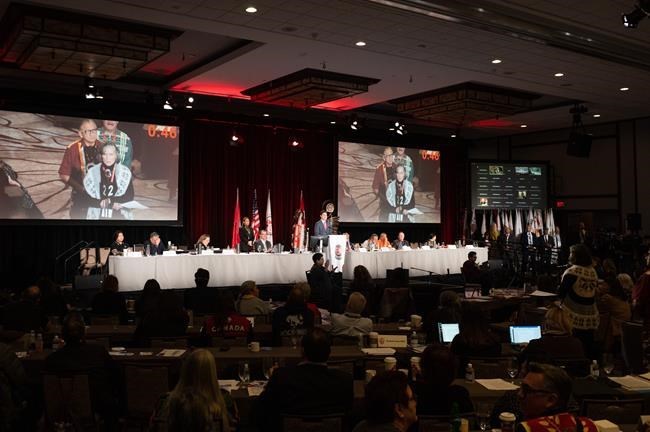OTTAWA — If the federal government is serious about revitalizing Indigenous languages, it must provide better funding, a parliamentary committee has heard.Â
Several speakers emphasized that point Monday in front of members of the House of Commons Indigenous and northern affairs committee, which is studying the issue.Â
Blaire Gould, executive director of Mi'kmaw Kina'matnewey, a group that promotes the Mi'kmaw language in Nova Scotia, says that while its funding situation has improved, she feels the overall support from Ottawa "does leave languages behind."
"Certainly, that is the most important thing that the federal government can do, is invest adequate funding into the endeavors of nations trying to restore their languages," said Gould.
Prime Minister Justin Trudeau has made revitalizing Indigenous languages one of his priorities when it comes to advancing reconciliation. The federal government has announced millions toward the cause during his tenure via multiple programs.
The federal Liberals also passed legislation in 2019 that was intended to address the problem. But advocates have criticized it for falling short of providing the protections needed to ensure all languages are kept alive.
Statistics Canada has reported the number of Indigenous language speakers in the country to be declining, though the 2021 census showed an increase among children eight years old and younger.
Some language instructors say they are seeing a greater desire within communities to learn Indigenous languages — including from parents and older relatives who want to ensure their children get opportunities that they missed out on due to government policies such as the residential schools system.
Gerry Guillet, a director of education in Saskatchewan'sfar north, told MPs "sustainable" funding is needed. He said he was recently informed that a request for money to fund language-related programming in his region had been denied.Â
"Our elders are disappointed that the language is not being maintained by our young ones," he said.
"English is dominant, and we insist in every one of our programs in the schools that Dene is spoken, so it can be revitalized. But the resources aren't there."
This report by The Canadian Press was first published Dec. 12, 2022.Â
Stephanie Taylor, The Canadian Press



